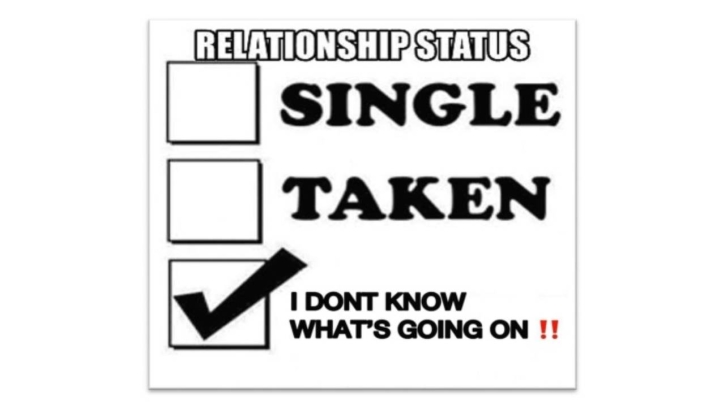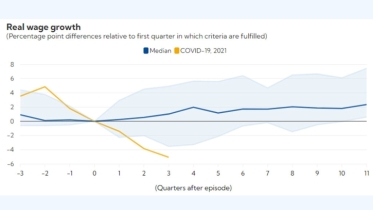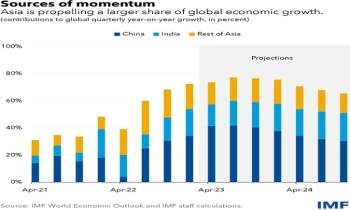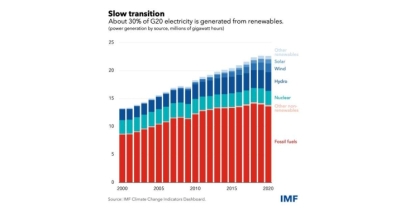Situationship: Yay Or Nay?
Amina Zaman Safina || BusinessInsider

Photo: Representational
Suppose, you are being lazy and laying in the bed, randomly scrolling through your Facebook newsfeed at midnight. Suddenly a notification chimes in and you check and notice a relatively good-looking man arrived at your friend request section. Intrigued, you further click on that profile and find out he is actually handsome and meets those certain criteria which attracts you enough to accept his request. And boom! He knocked you after a short while. Both of you clicked instantly and started chatting away day and night for days, resulting in meetups. Both of you kind of started taking an interest in each other despite not addressing the way you both feel or not getting into any type of commitment. Things keep going on like this without giving this relationship a label. But at some point you realise you caught feelings for that man and he is oblivious to the fact. And for some time you keep questioning yourself that whether to tell him or not about it. You end up confronting him and he states that he doesn’t feel the same way. He insists that he enjoys your company and suggests carrying it on like this. And there you sit puzzled, thinking of leaving this situation or not. But leaving him doesn’t seem like a choice to you at that time because you became emotionally attached to him. Your mind is telling you to leave for your own betterment. Despite knowing what to do, you are not being able to do the right thing – to leave. Now that is a “Situationship” for you.
A lot of you can relate to this particular situation but are not familiar with the term “Situationship”.
Situationship is so common yet a very underrated topic to be addressed.
Situationship, a term coined in recent years, refers to a romantic relationship that lacks clear boundaries or commitment. These relationships can be tricky to navigate, leaving many people wondering if they are a good or bad thing.
Casey Neonickx , in one of her article says that, “A situationship is an informal arrangement typically between two people that has components of both emotional and physical connection , yet operates outside the conventional idea of being in an exclusive committed relationship”. According to a article of a website called Real Research, the conventional terms “boyfriend” or “girlfriend” would not apply, yet it’s far from being a mere casual hookup. This bond involves going on dates , pursuing intimate relations and building emotional intimacy without a definite purpose. Many people irrespective of gender go through situationships. Especially after the Covid-19 pandemic hit the world, this undefined relationship dynamic has become increasingly common in modern society and in many parts of the world. According to a survey conducted by Cosmopoliton magazine in 2019, 59% of respondents had been in a situationship before. Of those, 33% said they had a positive experience, while 48% said they had a negative experience.
A study by the dating app Hinge found that 40% of their users had been in a situationship in the past year.
Of those, 72% said they felt confused about where the relationship was heading. Another study by the dating app Badoo found that 50% of millennials were open to the idea of a situationship, with 29% saying they preferred traditional relationships. In this article, we will explore the pros and cons of situationships to help make an informed decision about whether they are right for you.
Pros Freedom: Situationships offer a level of freedom that traditional relationships don’t. There are no expectations or obligations, allowing you to enjoy the present moment without worrying about the future. Flexibility: Situationships can be more flexible than traditional relationships, allowing you to explore different types of connections with different people without being tied down to any one person.
Low-pressure: Situationships can be less stressful and more relaxed than traditional relationships. There’s no need to worry about meeting your partner’s parents or planning a future together, which can be a welcome break from the pressure of traditional relationships.
Cons Lack of commitment: One of the biggest downsides of situationships is the lack of commitment. This can lead to feelings of insecurity, jealousy, and uncertainty about where the relationship is heading.
Communication issues: In a situationship, it can be difficult to communicate expectations and boundaries, which can lead to misunderstandings and hurt feelings.
Emotional turmoil: Situationships can be emotionally tiring, particularly if one person develops stronger feelings than the other. This can lead to heartbreak and a sense of rejection that can be difficult to overcome.
For any human being, if a situationship goes wrong, it can destroy a person’s mental health pretty badly.
Especially in a conservative country like Bangladesh, where marriage is considered the endgame. People
are very much driven by emotions here. Situationship can take a huge mental toll on a person throughout the whole situationship process. Because the whole time a person remains confused about the whole relationship status, suffers from indecision and can’t give the relationship a definite name even if he/she wants to because of attachment. As there is no commitment given between the two , when the other person leaves abruptly, the person who caught feelings gets hurt badly and feels confused and used.
Because according to the person (who caught feelings) things were going well and smooth. That person started to think that there was a future and was never given a reason that there wasn’t. That person will keep wondering what he/she might have done to cause it to end. This self-questioning, self-doubting and confusion will eat him/her away for days and nights.
While there is no clear consensus on whether situationships are good or bad, they are becoming more common among young people. In conclusion, whether situationships are good or bad depends on your personal preferences and needs. If you value freedom and flexibility over commitment, a situationship might be right for you. However, if you crave stability and security, a traditional relationship might be a better fit. Ultimately, the most important thing is to communicate openly and honestly with your partner to ensure that everyone is on the same page. Communication and clarity are key to making any type of relationship work, including situationships.
The writer, Amina Zaman Safina, is a student of Department of Marketing (Class roll: 1788, 13th batch), Jahangirnagar University
























